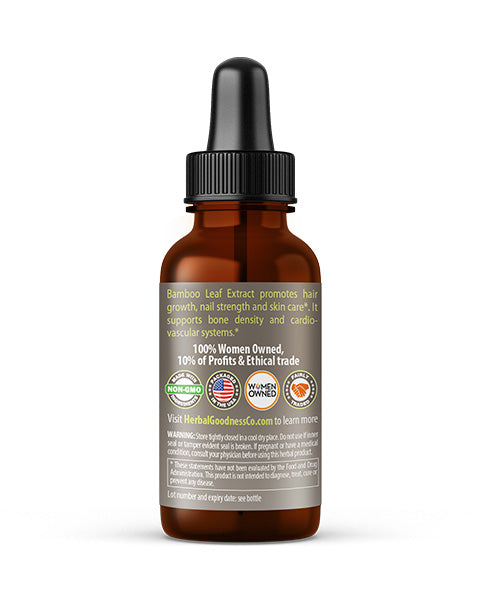The Role of Omega-3 Fatty Acids in Supporting Overall Well-Being
Omega-3 fatty acids are essential nutrients that play a vital role in maintaining good health. These essential fats are crucial for various bodily functions and are integral to promoting overall well-being. Since our bodies cannot produce Omega-3s naturally, it is necessary to obtain them from our diet or supplements. This blog will explore the importance of Omega-3 fatty acids and how they support different aspects of health.
What Are Omega-3 Fatty Acids?
Omega-3 fatty acids are polyunsaturated fats that are essential for health. There are three primary types of Omega-3s:
1. Alpha-linolenic acid (ALA): Found in plant-based sources such as flaxseeds, chia seeds, and walnuts.
2. Eicosapentaenoic acid (EPA): Found in fatty fish like salmon, mackerel, and sardines.
3. Docosahexaenoic acid (DHA): Found in fish and seafood, DHA plays a significant role in brain function.
Each type of Omega-3 fatty acid offers its own unique benefits, and when consumed together, they contribute to overall health.
The Key Benefits of Omega-3 Fatty Acids for Well-Being
Omega-3 fatty acids are well-known for their beneficial effects on different aspects of health. Let’s explore how Omega-3s support various areas of well-being.
1. Supporting Heart Health
Omega-3 fatty acids, particularly EPA and DHA, are recognized for their support of heart health. These fatty acids help maintain normal blood circulation and contribute to the cardiovascular system’s overall function. Omega-3s also help maintain healthy cholesterol and blood pressure levels. Including Omega-3-rich foods in your diet plays a role in heart health and supports ongoing well-being.
2. Supporting Brain Function
DHA is a major component of the brain and contributes to brain structure and function. Omega-3 fatty acids support cognitive abilities, memory, and focus. Regular consumption of Omega-3s can help with mental clarity and the ability to stay focused throughout the day. In addition, Omega-3s contribute to emotional balance and mental stability, making them important for emotional well-being.
3. Supporting Joint Health
Omega-3 fatty acids are beneficial for joint health because of their anti-inflammatory properties. These nutrients help the body’s natural response to joint discomfort and support mobility and flexibility. Incorporating Omega-3s into your diet can play a role in joint wellness and help the body maintain comfort during daily movements. Omega-3s assist the body’s efforts in supporting healthy joints, promoting overall comfort.
4. Supporting Skin Health
Omega-3 fatty acids are important for maintaining skin health. They support the skin’s natural moisture barrier, ensuring it stays hydrated and resilient. Omega-3s also help protect the skin from external stressors, such as UV rays and pollution. By consuming Omega-3-rich foods, you can support your skin’s natural function and contribute to a balanced, glowing complexion.
5. Supporting Eye Health
DHA, an Omega-3 fatty acid, is a key component of the retina and plays a significant role in eye function. Omega-3s help sustain healthy vision and contribute to eye health throughout life. Additionally, Omega-3s can help with dry eye symptoms by supporting proper tear production. Including Omega-3-rich foods in your diet supports eye health and contributes to long-term vision maintenance.
6. Supporting Immune Function
Omega-3 fatty acids help maintain a balanced immune system by supporting the body’s natural response to inflammation. Omega-3s assist in keeping the immune system working well, ensuring that it can perform its role in defending the body. Regular consumption of Omega-3-rich foods can support the immune system’s ability to respond appropriately, encouraging overall well-being.
7. Supporting Healthy Sleep
Omega-3s can play a role in supporting healthy sleep patterns. DHA, in particular, has been associated with supporting melatonin production, a hormone that regulates sleep-wake cycles. Including Omega-3s in your diet can help maintain the body’s natural sleep rhythm, contributing to better sleep and overall well-being.
How to Incorporate Omega-3 Fatty Acids Into Your Diet
Now that we understand the importance of Omega-3 fatty acids, let’s look at some simple ways to incorporate them into your diet:
Fatty Fish: Salmon, mackerel, sardines, and tuna are excellent sources of EPA and DHA. Aim to include at least two servings of fatty fish in your diet each week.
Flaxseeds and Chia Seeds: These plant-based sources are rich in ALA. Add them to smoothies, oatmeal, or baked goods for a convenient Omega-3 boost.
Walnuts: Walnuts are another good source of ALA. Snack on them or add them to meals like salads, yogurt, or baked goods.
Hemp Seeds: These seeds are a good source of Omega-3s and protein. Sprinkle them on salads or yogurt, or blend them into smoothies.
Omega-3 Supplements: If it is difficult to consume enough Omega-3s through food, consider taking a high-quality fish oil or plant-based Omega-3 supplement.
Conclusion
Omega-3 fatty acids are essential nutrients that contribute to overall health and well-being. From supporting heart and brain function to promoting joint, skin, and immune health, Omega-3s play an important role in maintaining balance and vitality. By adding Omega-3-rich foods to your diet or considering Omega-3 supplements, you can support your body’s natural functions and maintain long-term well-being.
Ready to support your well-being with Omega-3 fatty acids? Explore our selection of high-quality Omega-3 supplements at HerbalGoodnessco.com and give your body the essential nutrients it needs to thrive.
Click here to get Herbal Goodness; Avocado Leaf Tea - Respiratory, Heart & Metabolism Support













